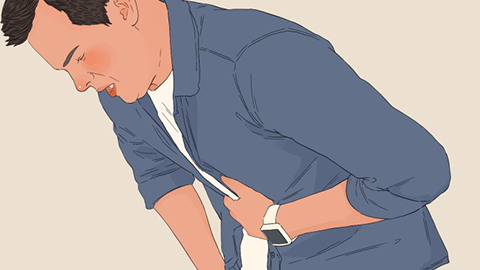Can overeating cause gastrointestinal bleeding?
Generally speaking, whether overeating can cause gastrointestinal bleeding depends on the specific health condition of the stomach and the severity of overeating. If discomfort occurs, such as persistent stomach pain, vomiting blood, or black stools, it is recommended to seek medical attention promptly. Detailed analysis is as follows:

If one already suffers from gastric diseases such as gastric ulcer or gastric mucosal erosion, with existing lesions on the stomach wall, and if the overeating is severe, a large quantity of food can continuously compress the stomach, causing a sudden increase in intragastric pressure. This may lead to rupture of blood vessels at the lesion site, thus causing gastric bleeding, which may be accompanied by symptoms such as black stools or mild stomach pain.
If the stomach has no underlying diseases, with intact mucosa and good elasticity, and the overeating is only occasional and mild, without excessive compression or damage to the gastric wall, the stomach can gradually digest the food through its own peristalsis. In such cases, gastric bleeding generally does not occur; there may be transient discomfort such as bloating or belching, which can be relieved after rest.
In daily diet, one should control portion sizes and avoid consuming excessive amounts of food at one time, especially avoiding overeating. For those with pre-existing gastric conditions, the principle of eating small meals frequently should be followed, with a selection of easily digestible foods. If severe gastric discomfort or black stools occur after overeating, timely medical evaluation is necessary—do not delay. During the recovery period, maintain a bland diet to avoid increasing the burden on the stomach.






